Backlinko Acquired By SEMRush: Here’s Why It Matters
If you have been online in the past few days, you might have seen that Backlinko was just acquired by Semrush.
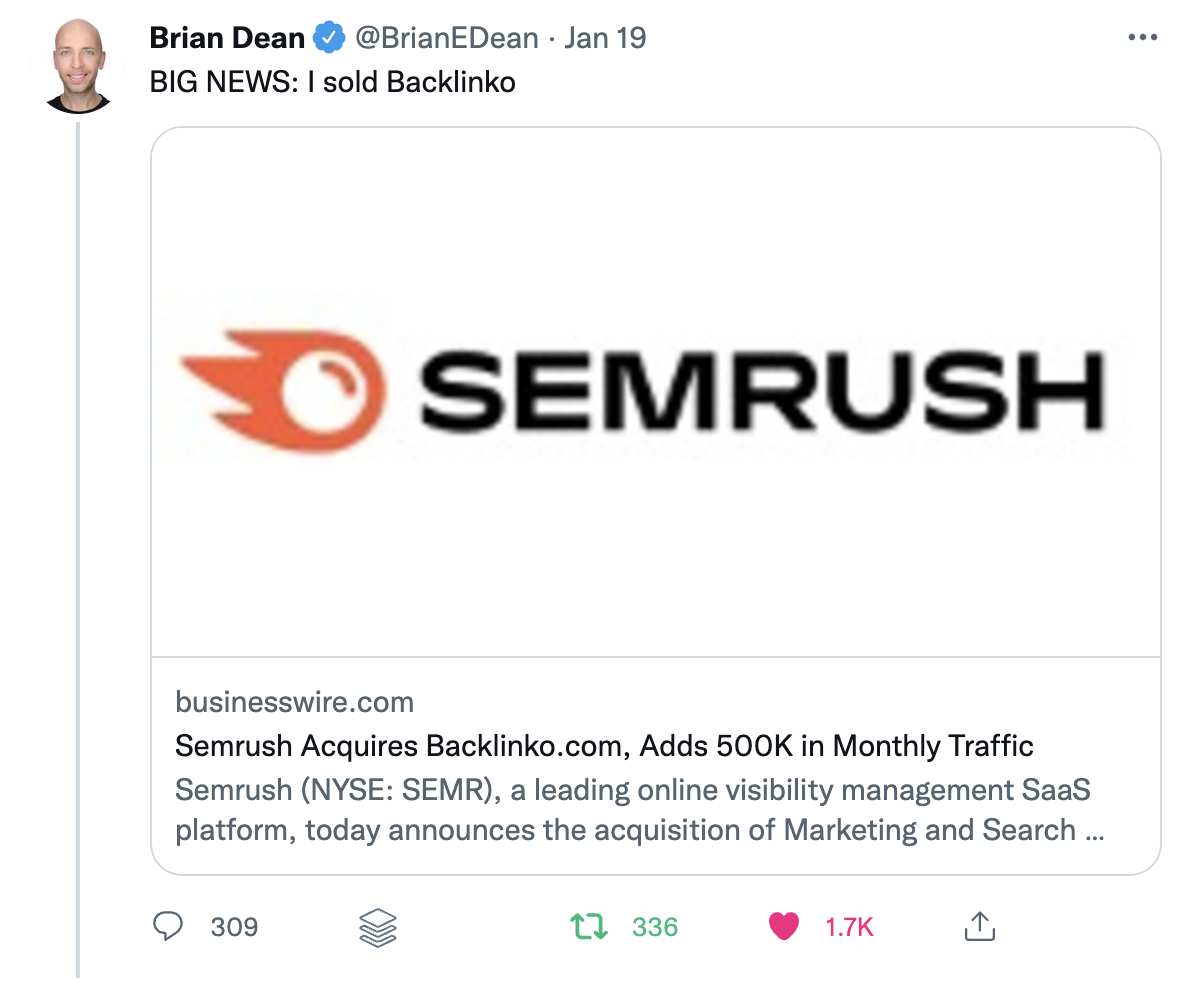
After almost 10 years, Brian Dean is stepping back from one of the most informative SEO and content sites in the world. He will be working with Semrush on a part-time basis and helping them continue to run Backlinko.
Honestly, it feels like the end of an era. I learned SO much about how to create and optimize content from his deep dives.
At one of the companies I worked at we used to share his content so much in our Slack channel, we made a Brain Dean emoji. And I’m guessing if you’re reading this essay, you probably have similar feelings.
That said, this acquisition is a fantastic addition to Semrush’s existing content portfolio. Ever since Semrush went public, about a year ago, they have been making some very significant moves to strengthen their brand presence and moat.
One of the biggest and most visible examples of this is their explosion of great social content.
According to the press release, “Semrush has aggressive goals to create a tailored and comprehensive online, self-service training platform to set the standard for digital marketing education globally.”
They have not disclosed how much the purchase price was, but whatever they paid they got a great deal.
Let me show you why.
Mục Lục
Instantly Doubling Their Traffic Value
In an instant, Semrush has almost doubled its traffic value by acquiring Backlinko. As well as boosted the number of keywords that it ranks on.
Right now they are getting about $1M per month in organic search traffic value.
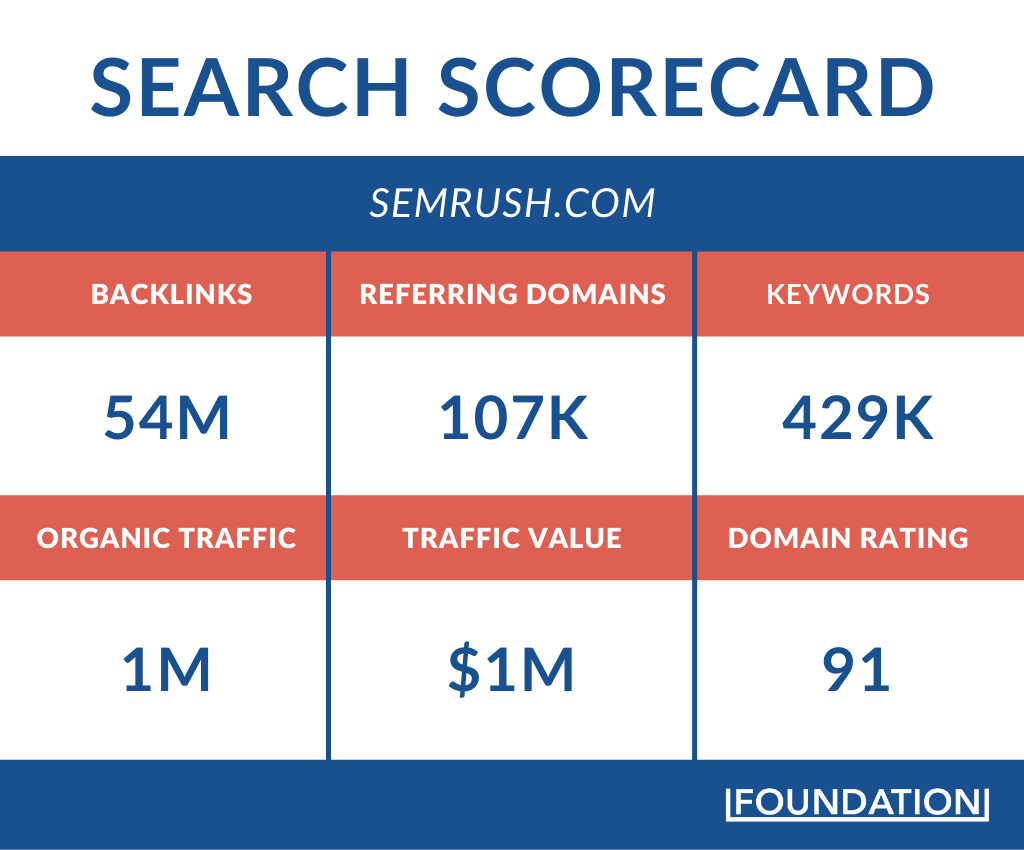
And by bringing all of Backlinko’s content under their umbrella, they will add $800k+ in new traffic value.
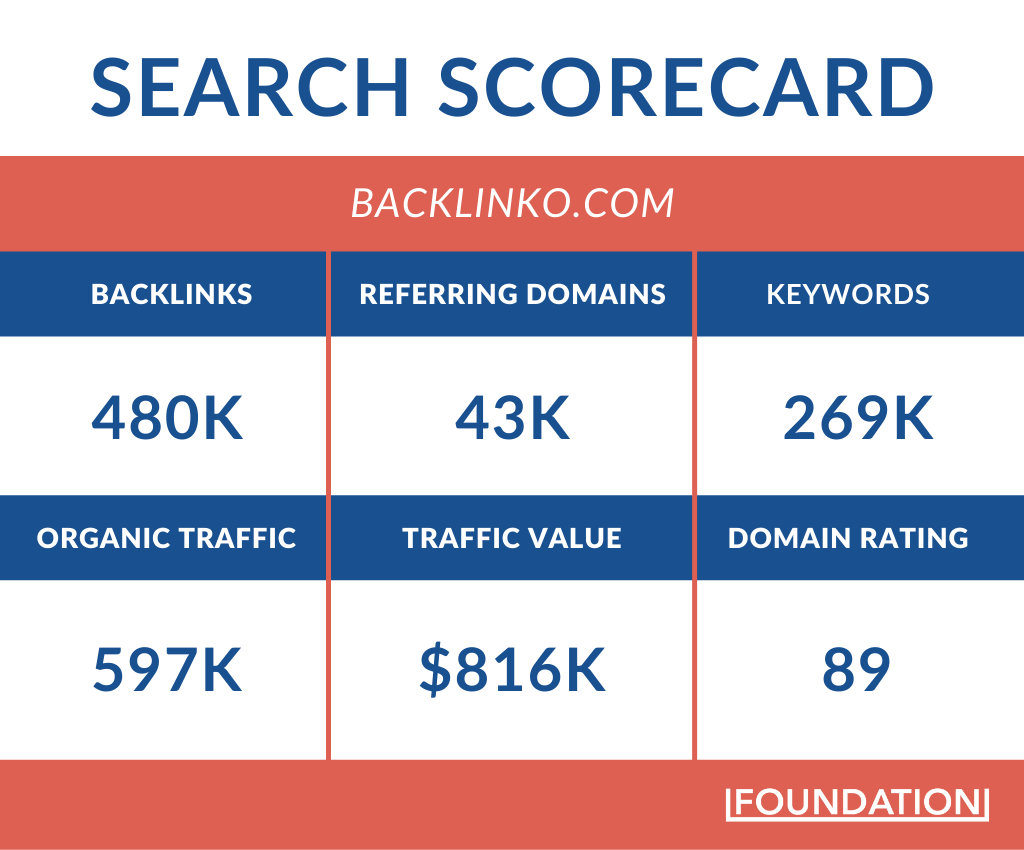
When I first read that stat I was a bit flabbergasted. I had no idea Backlinko had captured that many keywords over the past 10 years and had such a high traffic value.
But if you were to only look at that metric, you could call this a very smart acquisition.
Especially because this acquisition boosts their total traffic value to more than Ahrefs, Moz, and other direct competitors in the space.
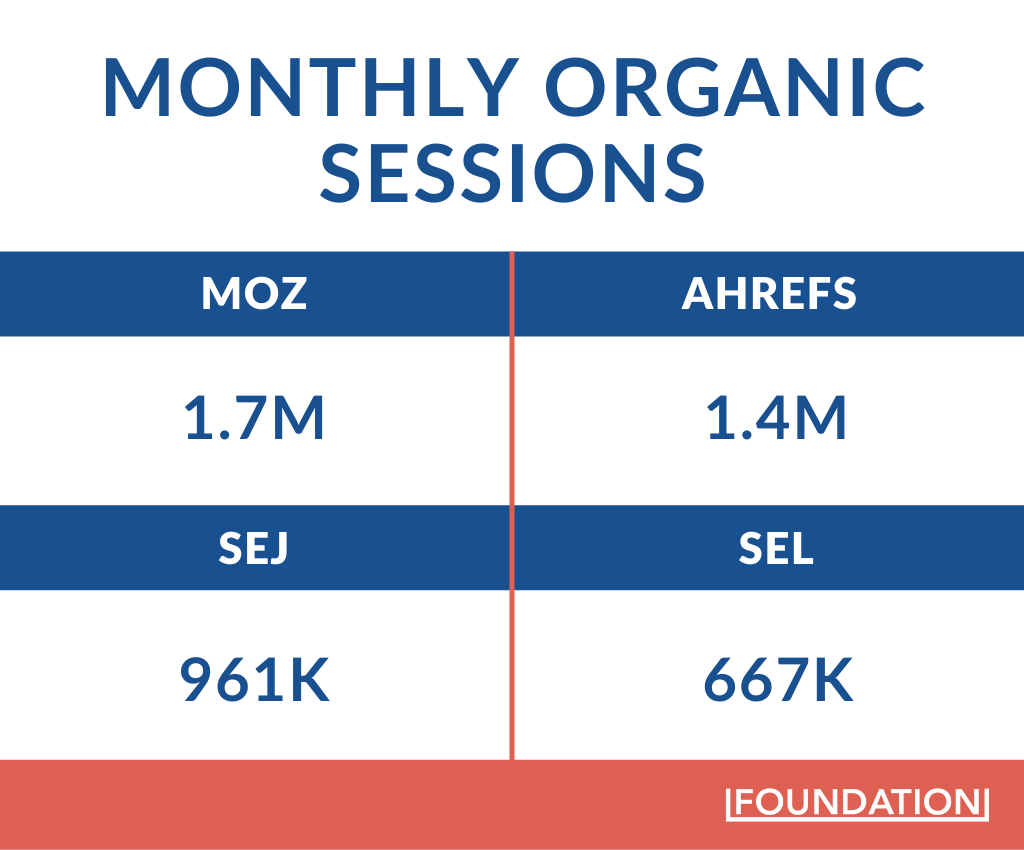
Those traffic numbers and keyword metrics don’t even take into account the value of Backlinko’s brand name, YouTube page, and other assets.
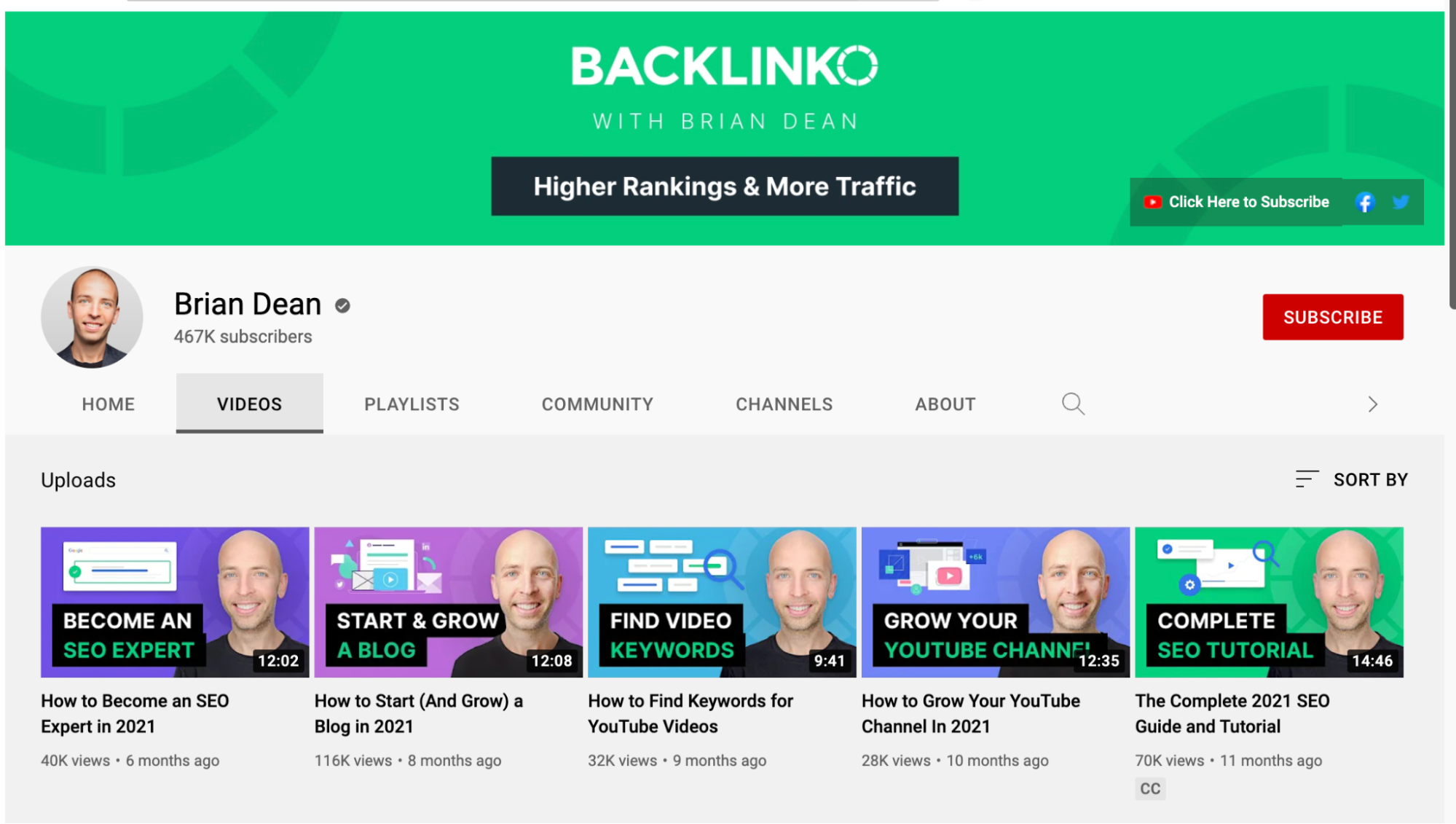
Whatever they paid, it definitely was a bargain.
Can’t Beat Em, Buy Em
One of the biggest things that people seem to be missing out on when covering this story is that Semrush and Backlinko were competitors.
Not in the traditional sense.
But when looking at search metrics, they were competing on a TON of the same keywords.
Semrush and Backlinko compete, or well now competed, on around 25k keywords. That translates to about 13-14% of all of Semrush’s ranking keywords.
The only brands that had more keyword overlap, were companies that people would call Semrush’s true competitors in the space: Ahrefs and Moz.
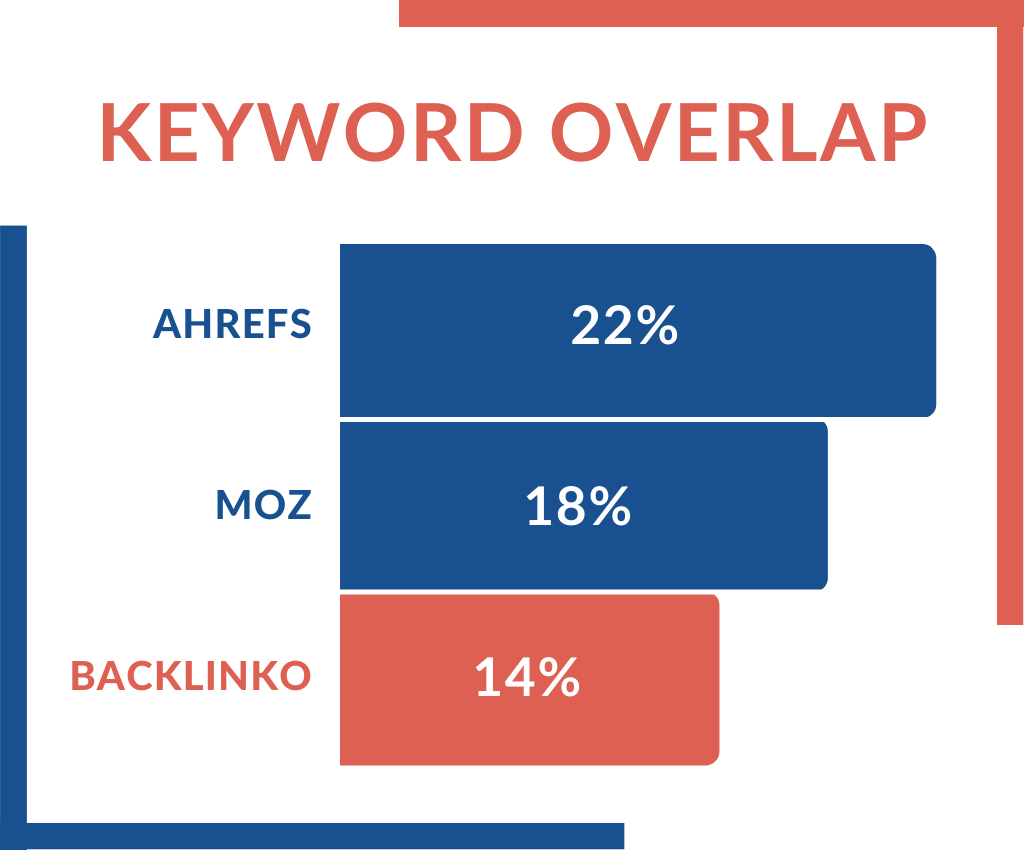
And they were competing on some big volume keywords:
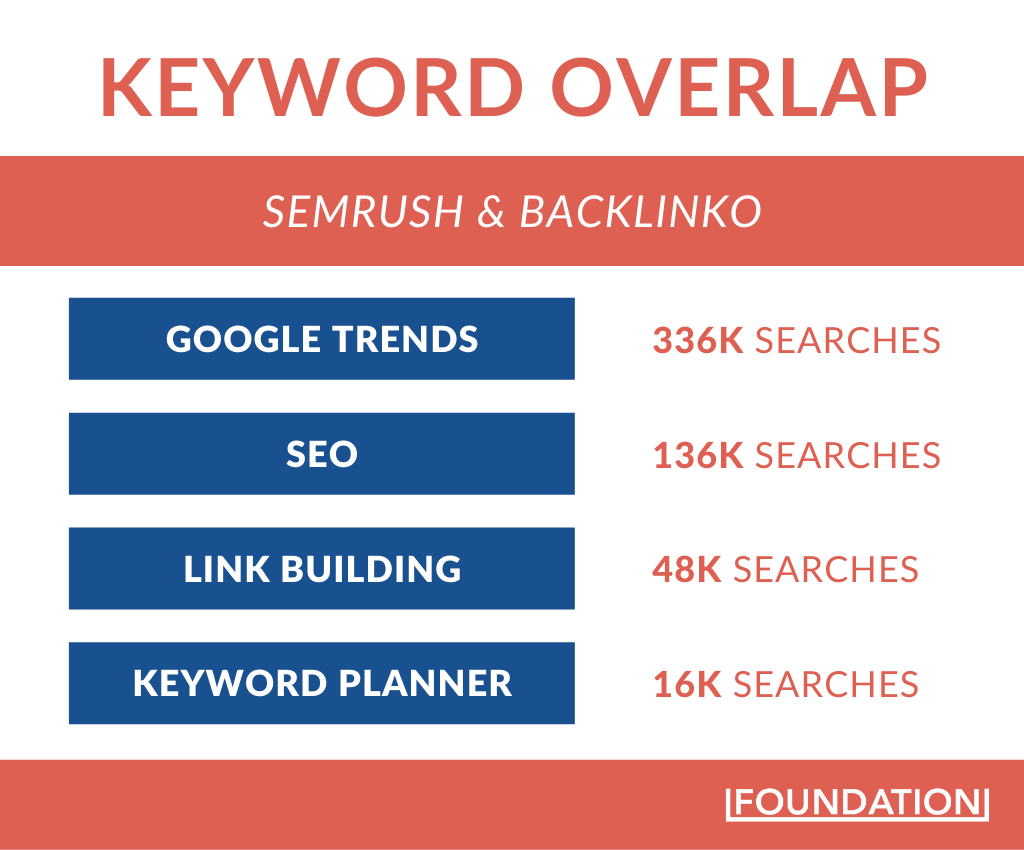
On the keyword “link building” which gets around 48,000 searches per month, Backlinko is ranking #2 and Semrush #9:
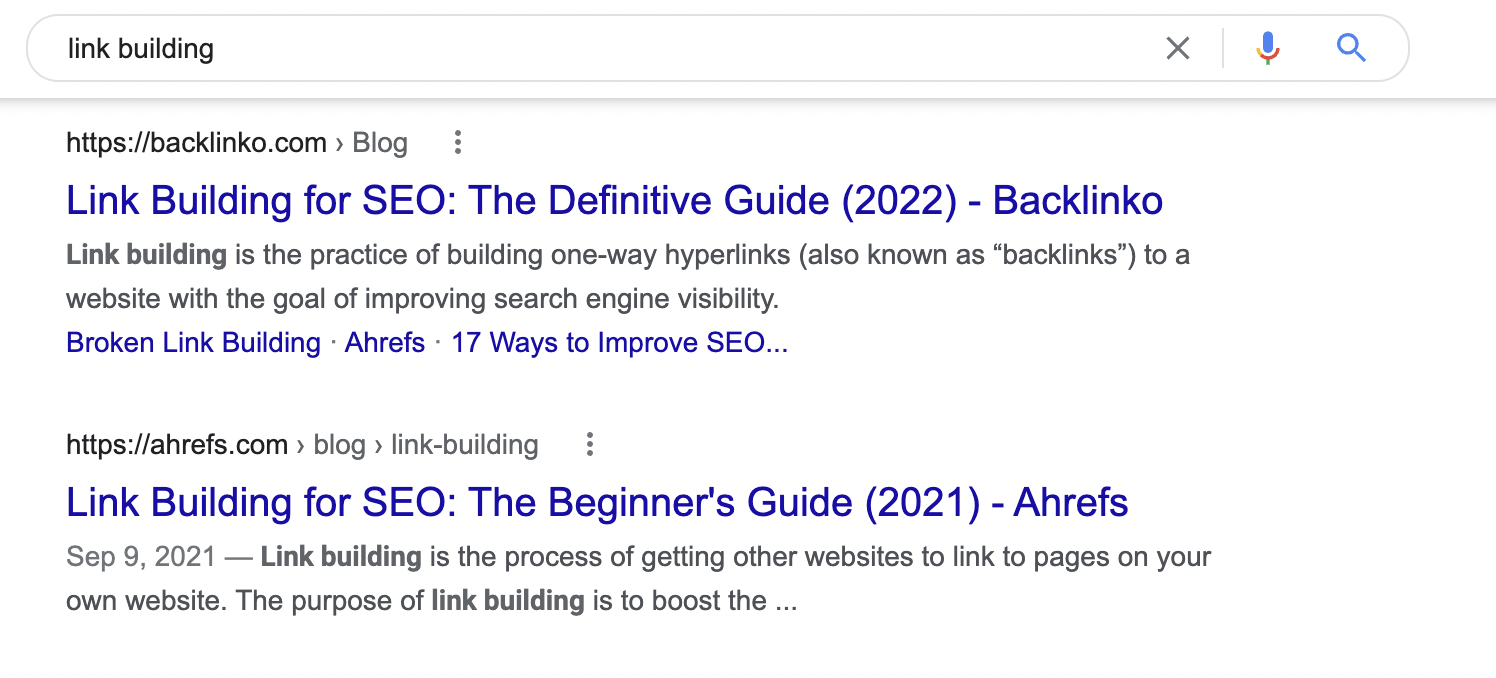
Just on that single search term, it would have taken a significant amount of time and investment to move up on the first page.
With this acquisition, they now can control the #2 spot on that keyword and outrank Ahrefs.
There are hundreds of other examples of keywords as well.
Further giving credence to the idea that in an ultra-competitive market like this, it might be easier to buy an established brand instead of directly competing with them.
Backlinko was also able to rank on the first page of the term “Semrush”, which is usually unheard of for branded terms.
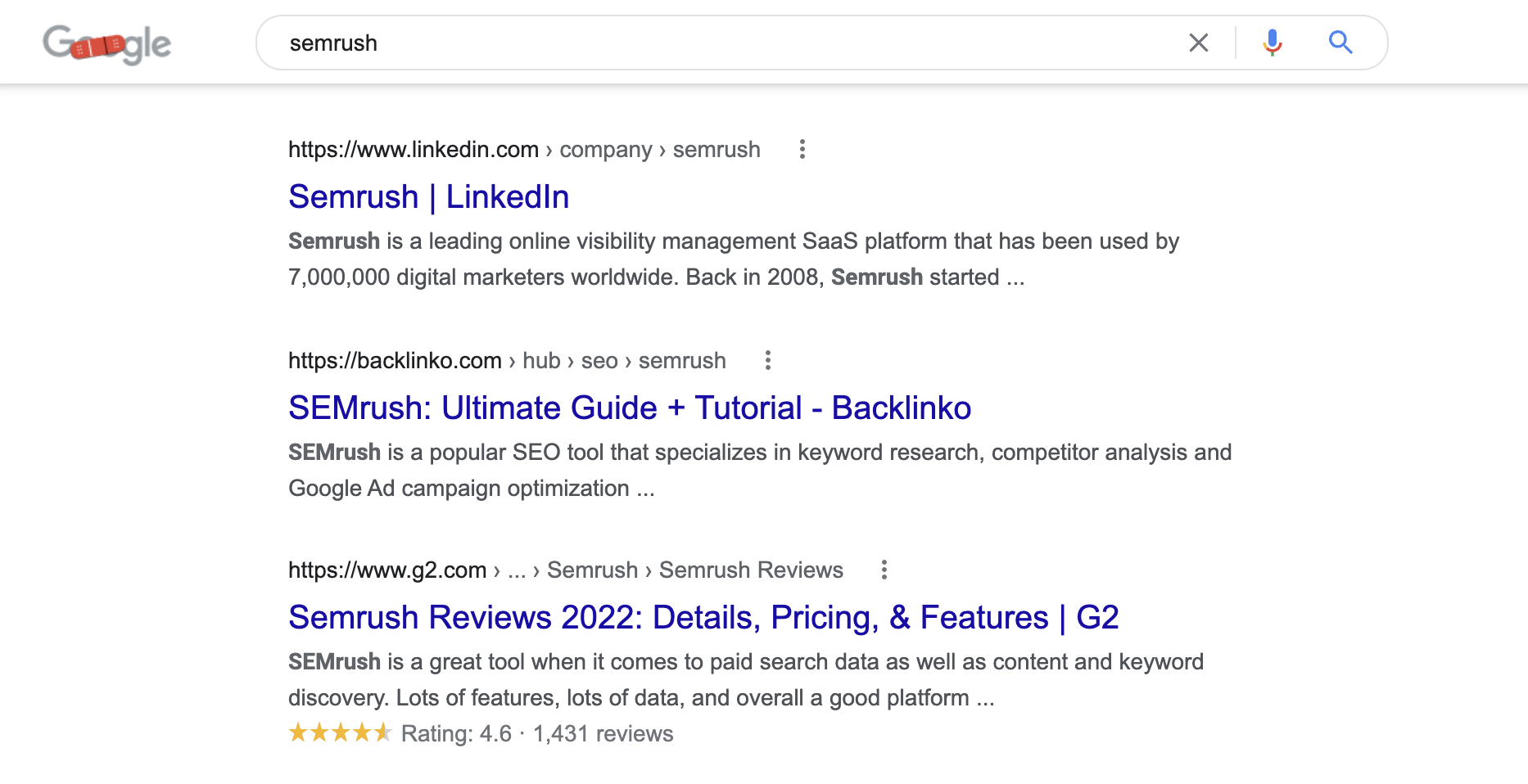
This keyword overlap is a pretty big anomaly and illustrates how valuable Backlinko’s traffic and keywords are to Semrush.
Now instead of competing on a lot of the same keywords, they can use internal linking and increased optimization to boost each other up. And likely take up two key spots on very competitive keywords.
Capturing The Right Users
According to the press release, Semrush wants to “set the standard for digital marketing education globally.”
And if there’s one thing I know about Backlinko, it’s that their content has been doing that for the past decade.
Outside of Brain’s long-form content that breaks down SEO topics so eloquently, the most valuable part of Backlinko might be the Hub.
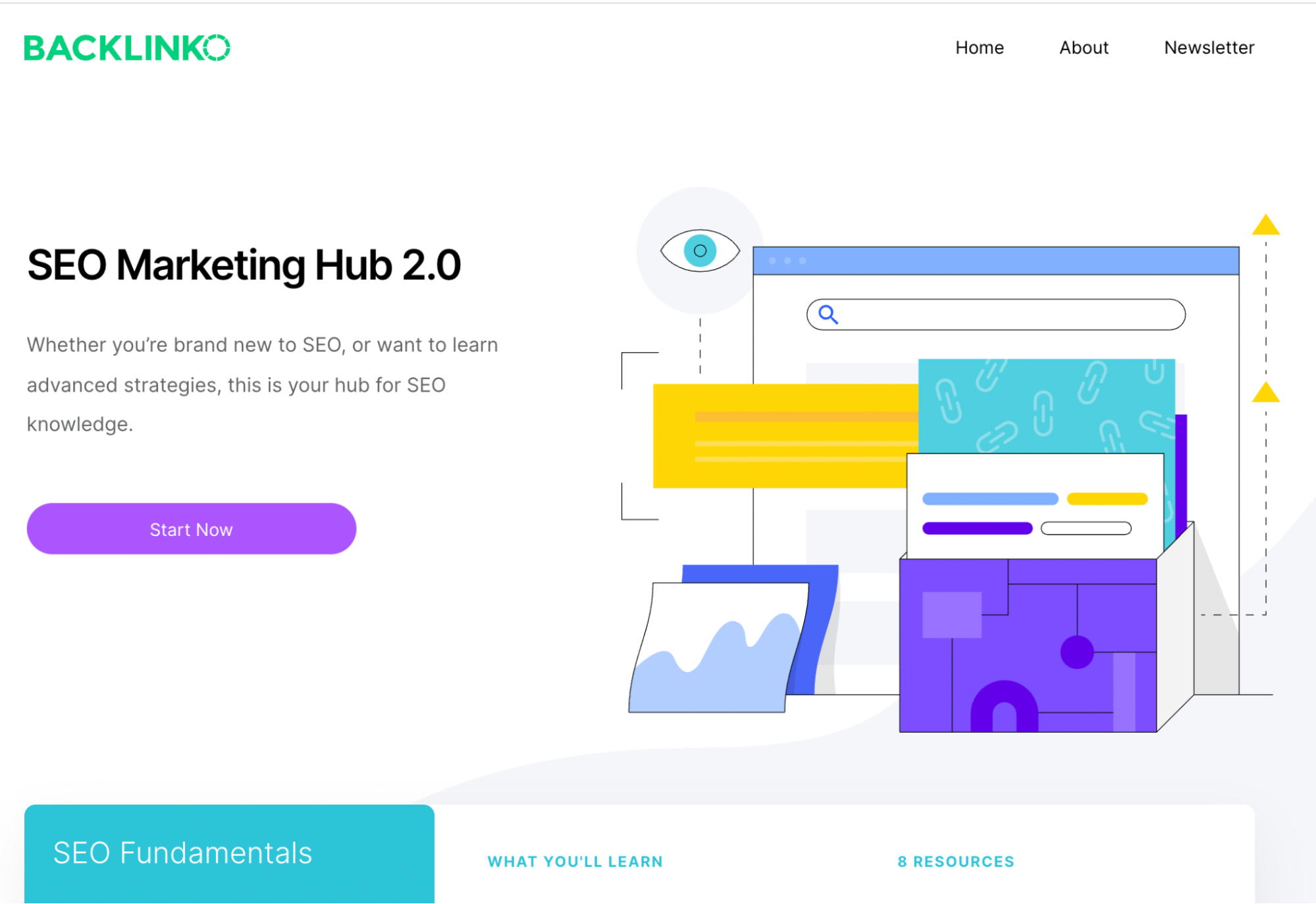
The Hub is perfectly situated to be that piece of content for them. It covers very basic SEO concepts, and that’s exactly who Semrush wants to use its products.
They likely want to lock new marketers into their products at the beginning of their careers. And with the Hub and their expansion of education materials, that looks very promising.
Launched about 2 years ago, the Hub is ranking on 75k keywords worth about $285k in monthly traffic value:
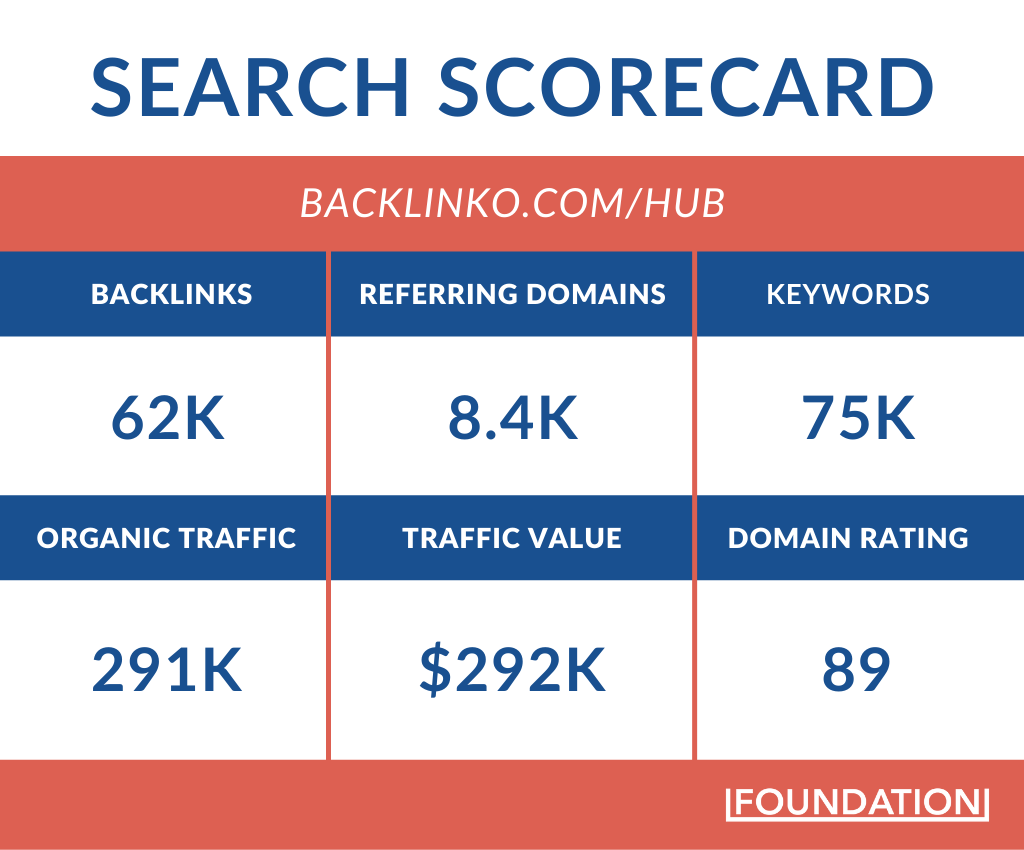
Compare that to Semrush’s Academy which is only ranking on about 4.5k keywords right now.
When you drill down and look at what is directly competing with just the Hub, a familiar face is at the top of that list: Ahrefs.
The Backlinko Hub and Ahrefs are competing on 8k+ right now. I’m guessing that Semrush is very happy to take a big chunk of that search traffic away from one of their top competitors.
The Hub is also built extremely well, from a technical SEO perspective, so expanding the topics and new keywords should be relatively well.
Semrush likely saw that it was going to be a heck of a lot easier to get their educational content to rank by adding it to the Hub.
Again instead of competing directly, they can now set themselves up as trusted partners and a solution to all of the content on Backlinko and the Hub. And it doesn’t hurt to have Brain Dean’s name to add a lot of legitimacy to a new marketing effort.
So Build It Or Buy It?
At the end of the day, Semrush likely saw that it was going to be a lot easier to hit their immediate goals by buying Backlinko. Instead of directly competing with them.
That said, this acquisition is not in the same vein as The Hustle being bought by Hubspot or Business Insider buying Morning Brew. There’s very little overlap between those companies, other than their general audience.
People are seeing this acquisition as a SaaS company buying a media company but it instead should be viewed as competitors merging their content moats.
I don’t think people realize how hard it would have been for Semrush or Backlinko to “win” this digital arms race.
Both brands are operating in an EXTREMELY competitive and mature niche. It might have taken each of them another 10 years of battling on keywords before one could be considered a winner.
Some of these keywords that they likely want to expand into have 90+ keyword difficulty. That means you would need 1000+ links to your content to rank on the first page.
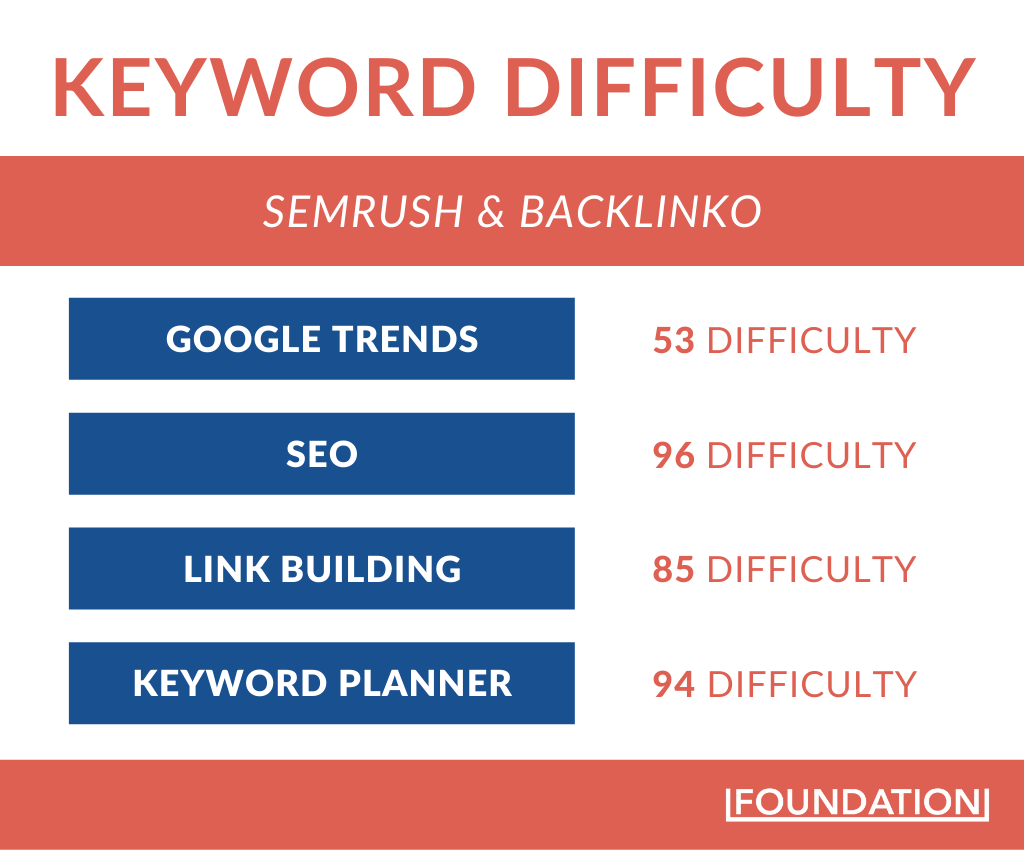
Currently, Backlinko is ranking on the first page for about 5k keywords that have an 80+ KD.
Just to put that in perspective, Hubspot, which ranks on about 4.7M keywords, only has 17k keywords like that. And Semrush only has around 3.7k keywords that fit that bill.
Another caveat to think about when it comes to some of these keywords is that they have been around since the early days of SEO. It’s going to take a lot of work to disrupt the content that has been ranking there for 5+ years.
When you take a deep dive into each of the main keywords that both Backlinko and Semrush are ranking on, you will see it’s been the same handful of brands for the past few years.
They may swap places throughout the year, but it’s basically the same content as it’s always been.
As you can see, there is a TON of upside in this acquisition. And it will likely begin paying dividends very soon.
Out of all the acquisitions I have seen this year, this might be the most sound from a search, brand, and marketing perspective.
I have to tip my hat to the team at Semrush, they really nailed it.
Now what they do with it, we will have to wait and see!















![Toni Kroos là ai? [ sự thật về tiểu sử đầy đủ Toni Kroos ]](https://evbn.org/wp-content/uploads/New-Project-6635-1671934592.jpg)


